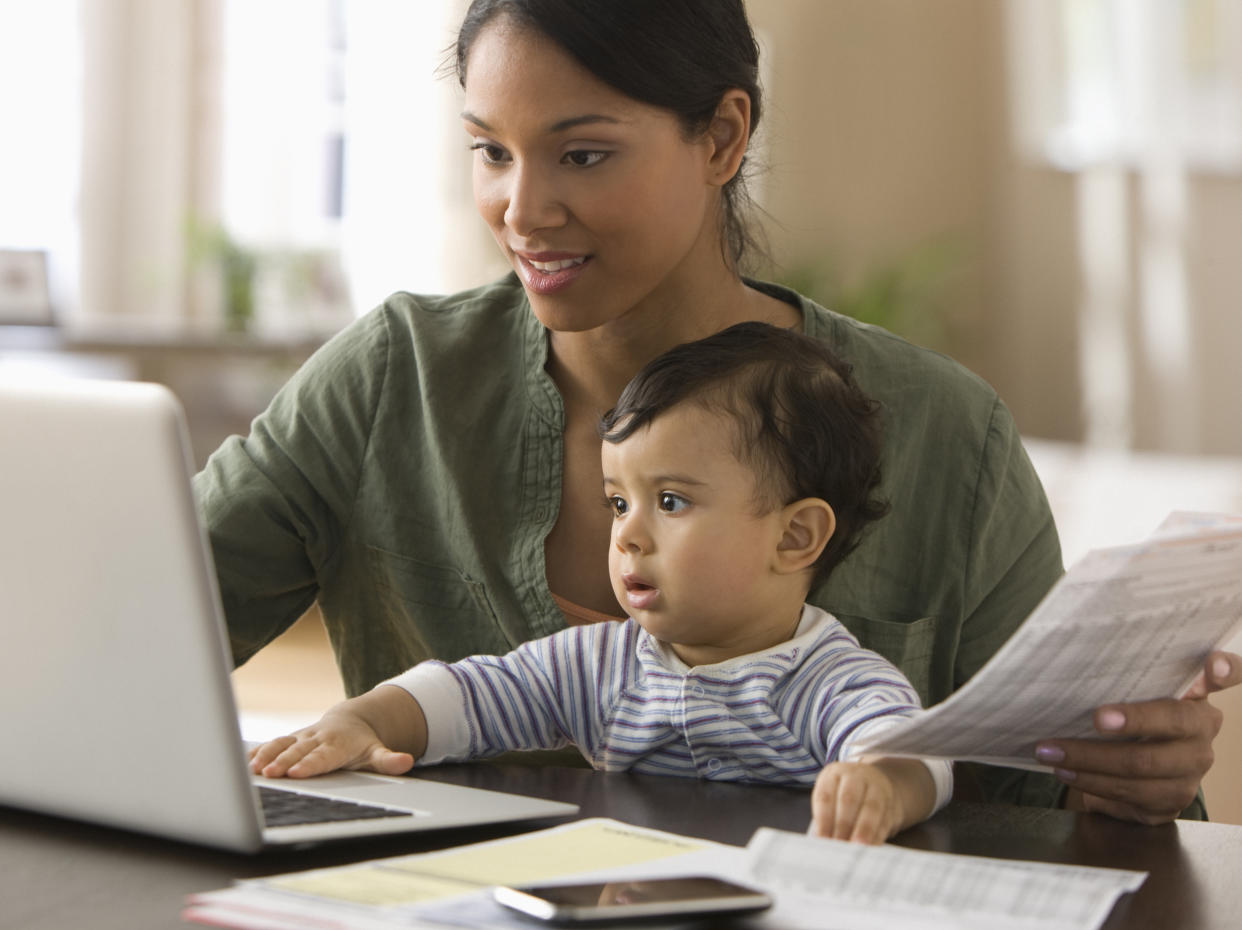Lockdown is breaking the stigma of juggling work and parenting

The coronavirus lockdown has brought many things into focus, but particularly the issue of work-life balance. With many people working from home and schools closed, parents have had to manage their usual workload while looking after kids who would usually be at school or nursery.
Understandably, this has been deeply stressful. But it has also led to some uplifting television moments — such as young children interrupting live news interviews.
Last month, Dr Clare Wenham, an assistant professor at the London School of Economics, was discussing the lockdown on the BBC when her young daughter strolled in with her own conundrum: Where should she put her framed unicorn picture?
To the delight of viewers, anchor Christian Fraser engaged her daughter in conversation — complimenting her on the drawing: “Scarlett, I think it looks better on the lower shelf.”
READ MORE: Women working from home are still dealing with comments about their appearance
Later that day, Sky News foreign affairs editor Deborah Haynes experienced a similar disruption when her young son entered her home office to ask if he could have two biscuits. Haynes paused her analysis of China's new Hong Kong laws to gently ask her son to leave the frame, but her segment was still cut short. “I can confirm that his high-stakes negotiating skills netted him two chocolate digestives,” she later tweeted.
These moments may be entertaining, but they offer a glimpse of the challenging realities working parents often face when juggling jobs and childcare. While some employers are understanding of the difficulties parents can face, others are less empathetic.
“The lockdown has definitely helped to make the juggle between work and parenting more visible,” says Angharad Salazar Llewellyn, founder of The Flex Network, which connects freelancers, small business owners and flexible workers. “There's the old saying — we're expected to work as if we're not parents, and parent as if we don't work.”
The view that women can’t be good workers and good parents at the same time is pervasive. In 2018, a study surveying more than 50,000 individuals across 18 countries found that the factors that most strongly correlated with thinking that women shouldn’t work were beliefs that children and family suffer if mothers work. These “motherhood myths” were prevalent even in countries with progressive parental leave policies, such as Sweden.
The social prejudice that women should carry the overwhelming responsibility for caring for children isn’t just driving gender pay gaps, though — it can also prevent fathers from playing a more active role at home.
Two in five dads who have applied for flexible working have had their requests turned down, while a report by the Women and Equalities Committee found some men have been mocked by colleagues after choosing to work part-time to share childcare duties. And with women prevented from going back to work, this has a knock-on effect on their progression in the workplace too.
Normalising flexible working and shared parental leave is key to addressing the problem, as is being more understanding of the challenges many working parents experience.
READ MORE: What leave and flexible working are parents entitled to during the pandemic?
After the pandemic passes, it is thought there will be a cultural shift towards working from home and away from the traditional 9 to 5. According to data from CIPD, employers expect the proportion of people working from home on a regular basis to increase to 37% after the pandemic, compared to 18% before. Having already had a “trial run” of remote working, some businesses may be open allowing flexible working in the future — but it remains to be seen.
“I don't think we'll understand the true effects of this pandemic on flexible working in the short-term,” Llewellyn says. “Businesses are under huge pressure just to stay afloat and this may drive them to be more conservative or go back to doing things in a way they have always been done.
“However, a recent study by the World Economic Forum showed that most workers want to continue to work flexibly and for a manager who leads with empathy and a supportive attitude,” she adds. “The pandemic has clearly shown that this style of leadership is to be valued.”



